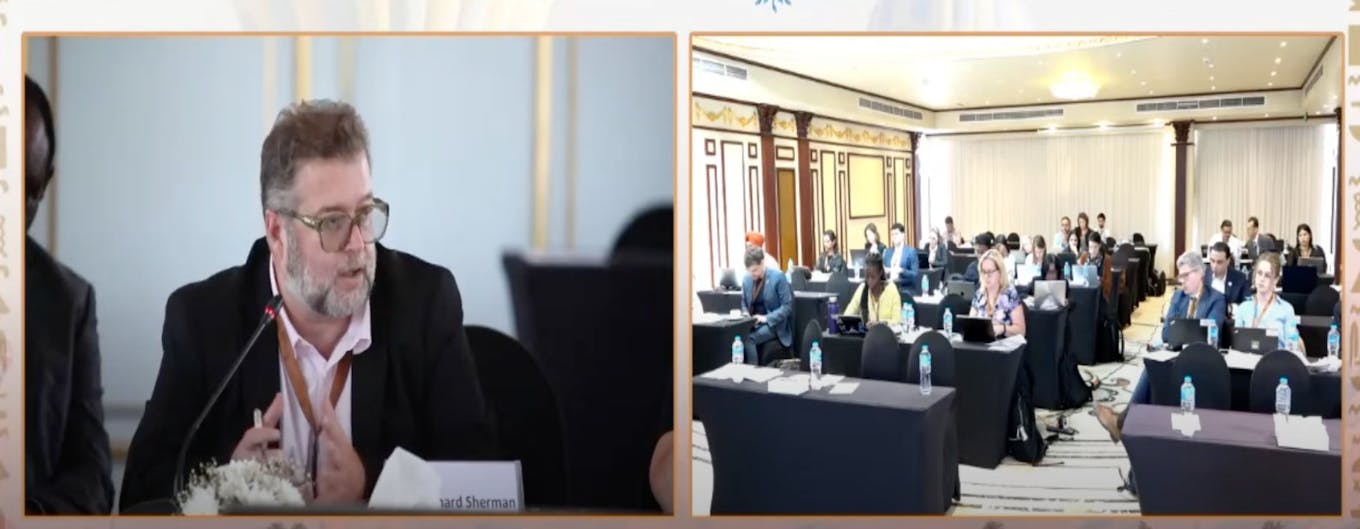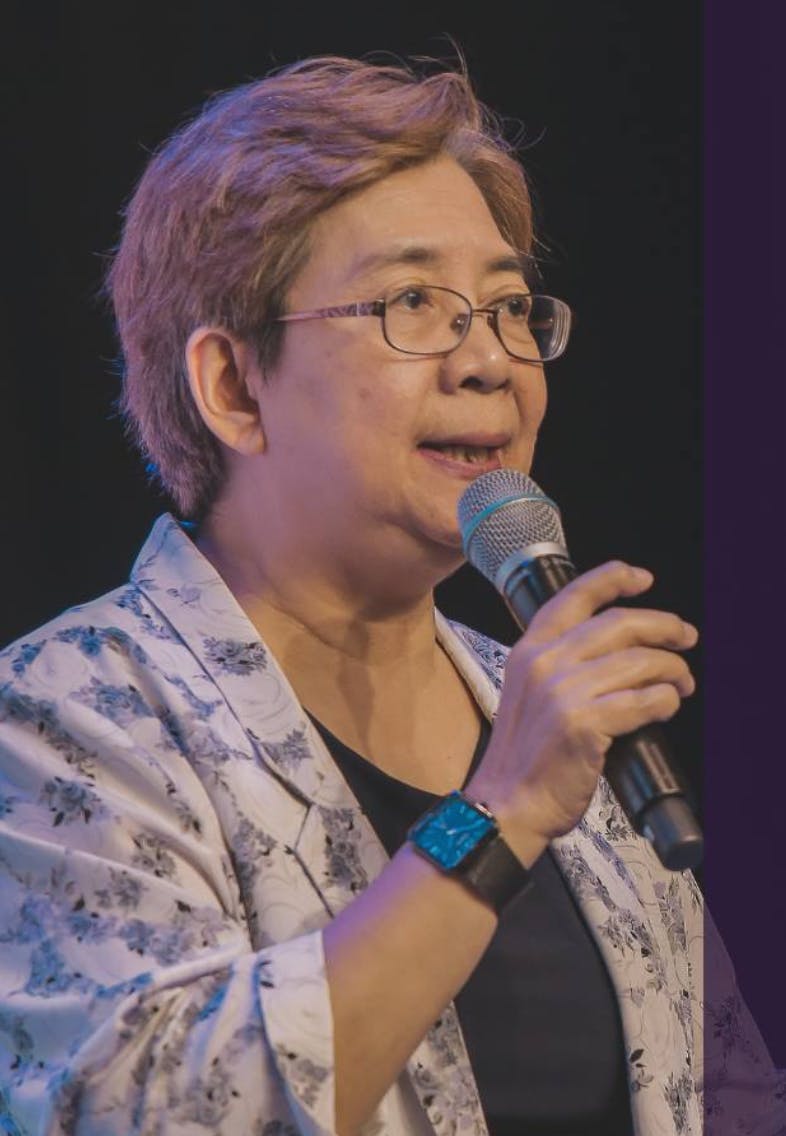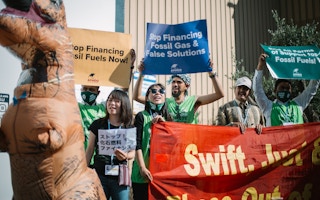There was limited participation of civil society during the first meeting to discuss rules for a global loss and damage fund that would help vulnerable countries recover from climate disasters, compared to other interest groups, according to climate advocates.
To continue reading, subscribe to Eco‑Business.
There's something for everyone. We offer a range of subscription plans.
- Access our stories and receive our Insights Weekly newsletter with the free EB Member plan.
- Unlock unlimited access to our content and archive with EB Circle.
- Publish your content with EB Premium.
The “Transitional Committee” (TC), which was set up at last year’s climate conference, held the first of four meetings from 27 to 29 March in the Egyptian desert city of Luxor, with a deadline for the 28th session of the Conference of Parties (COP28) climate talks at the end of this year. The meetings are meant to address the questions of how the fund will operate, who will pay, who will benefit and how it will be governed.
There were eight in-person seats allowed per constituency such as environmental non-governmental organisations, youth, labour and women, but they were put in an “overflow room” adjacent to the area where the actual negotiations where happening, thus unable to influence the process, said Dorothy Guerrero, head of policy and advocacy of Global Justice Now, a non-profit that mobilises people in the United Kingdom to act in solidarity with those fighting injustice, particularly in the Global South.
“Delegates from developing countries expressed their worry that the fund must not be watered down and should be set up on solid foundations,” Guerrero said.
Meanwhile, the World Bank and United Nations agencies are represented in the technical support unit, which helps the TC in preparing the agenda, scope and what happens after the meetings, she said.

Richard Sherman of South Africa, co-chair of the Transitional Committee, speaks during the first day of the committee meeting in Luxor, Egypt on 27 March. The overflow room (right) is where observers like civil society organisations listen to the negotiations. Image: UNFCCC
Based on the COP decision that led to the creation of the TC, only 24 seats are allowed in the negotiations, and are allocated based on region and development status, including shared seats from India, the Philippines, Saudi Arabia, China, South Korea and Pakistan.
A technical support unit, composed of key United Nations agencies and international financial institutions like the World Bank and the Green Climate Fund, was established to provide additional technical expertise and support to the TC, through inputs and recommendations. The civil society organisations (CSOs) in the overflow room can observe but cannot directly participate except through members of the TC.
“Many climate justice organisations are following the climate discourse, doing their own expert studies and supporting the frontline communities that are already on the sharp edge of the climate crisis. They should have a voice, be consulted and be able to submit their proposals on how to make the loss and damage fund work,” Guerrero told Eco-Business.
A few days before the transitional committee meeting was held, the number of observer seats per constituency was originally three. The increase to eight was due to the appeal made by hundreds of civil society organisations to improve the participation of the grassroots community, said Claire Miranda, climate justice advocate at the Asian Peoples Movement on Debt and Development (APMDD), a regional alliance of 50 member organisations and movements.
“In the past, when the Green Climate Fund Transitional Committee meetings were conducted, there was no limit for civil society participation, and submissions from stakeholders were solicited and recorded in the meeting proceedings,” Miranda told Eco-Business.
“It is crucial that the transitional committee consider further expanding the participation of CSOs, especially those from developing countries representing millions of people and communities heavily impacted by the climate crisis,” she said.
The loss and damage fund is considered the biggest breakthrough agreement more than 30 years since the idea was first proposed by the climate-vulnerable Small Islands Developing States group. Members from the developed countries of the United Nations Framework Convention on Climate Change (UNFCCC) who blocked it for many years finally recanted at COP27, which was held in Sharm El Sheikh, Egypt last year.
The Philippines’ strategic role in the loss and damage meetings
The next transitional committee meeting to be held in May in Europe will involve delegates from the Philippines, which takes turns with India and Saudi Arabia in attending the three meetings.

Dr Rosa Perez, one of the lead authors of the 2022 Intergovernmental Panel on Climate Change (IPCC) report, makes a presentation on global warming in 2018. Image: Climate Change Commission
Climate scientist and meteorologist Rosa Perez will represent the typhoon-prone archipelago in a negotiation that is expected to be more difficult than the first, as talks centre on which countries will pay and who will benefit.
Who will contribute to climate funding is still based on the list of members from a club of wealthy countries called the Organisation for Economic Cooperation and Development (OECD), which China, one of world’s top polluters, is still not a part of.
“It is indeed a problem that the basis of the grouping and who are contributing to current funds are based on the OECD list in 1992. Many countries become richer and more polluting since then. However, the lifestyle and emissions of average Americans and Europeans are still much higher than that of countries with huge populations as China and India,” said Guerrero, who has been working on social movements and development for the past 30 years.
Perez should flag the role not just of rich countries but also fossil fuel corporations in paying for pollution and environmental damage, such as the ongoing oil spill in the Philippines, noted Guerrero.
An oil tanker went down in rough seas off the Philippine province of Oriental Mindoro on 28 February, destroying the environment and livelihoods of poor communities who have yet to be compensated by the ship’s owner.
Miranda sees the second meeting as an “opportunity” for Perez to share the realities of the country’s people and communities.
“The second transitional committee meeting will feature case studies to better understand the gravity of loss and damage in different parts of the Global South, so it could be an opportunity for Perez to support those facts based on our country’s experience,” she said.
Want more Philippines ESG and sustainability news and views? Subscribe to our Eco-Business Philippines newsletter here.










